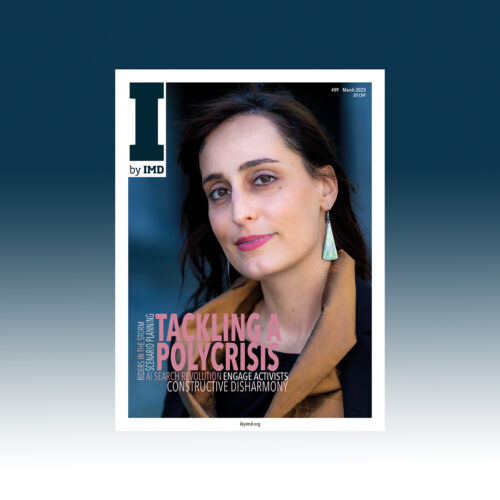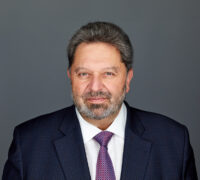While the short-term margin decline might have made uncomfortable reading for Danone’s investors, so far, they have kept the faith. The share price rose after he set out his strategy and is up slightly year-on-year.
“Don’t underestimate the knowledge that the market has of your company,” said Saint-Affrique. “Analysts are extremely smart and well informed. They look at market shares sometimes even more than your brand managers. So there is no hiding from the truth.”
Quality growth with balanced price, volume, and mix is a playbook Saint-Affrique successfully applied in his previous role as CEO of Swiss cocoa and chocolate manufacturer Barry Callebaut, where he more than doubled the company’s share price during his six-year tenure.
A culture of asking difficult questions
Reflecting on his approach to Danone’s transformation, Saint-Affrique explained his strong belief in playing to win rather than playing not to lose. The former requires a willingness to take a risk, and therefore also to fail, while also obsessively monitoring competitors and measuring market share.
The trick, said Saint-Affrique, is to combine measurement with a culture where people are being rewarded for experimenting and taking risk.
“If you blame people who have taken a risk and failed, indeed nobody will take any risk,” he said. “If you create a culture where it is legitimate to ask difficult questions, where we work together at solving those questions, and we take ownership of the resolutions, you create an atmosphere where talking facts and measuring is just the ground on which you grow your people – and your company.”
Speaking up and being true to values are traits that Saint-Affrique expects from his top team. Once trust has been established, he loves solving problems. “Bring me your problems with your recommendations for solutions and we’ll move from there. Put the issues on the table and 80% right immediately is better than 100% late.”
He also expects his executives to be pragmatic and practical, focused on growing people and relentless about learning. “The day you think you’ve learned everything, you become useless,” he said.
Personal renewal
This quest for constant learning and renewal is something Saint-Affrique applies to himself. When he took over as CEO of Barry Callebaut, he told the board that he planned to stay for a maximum of seven years to avoid becoming stale, and also to create room for budding talents to emerge and thrive within the organization.
YouTube

 Podcast available
Podcast available


 Podcast available
Podcast available